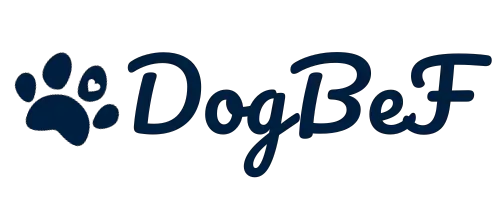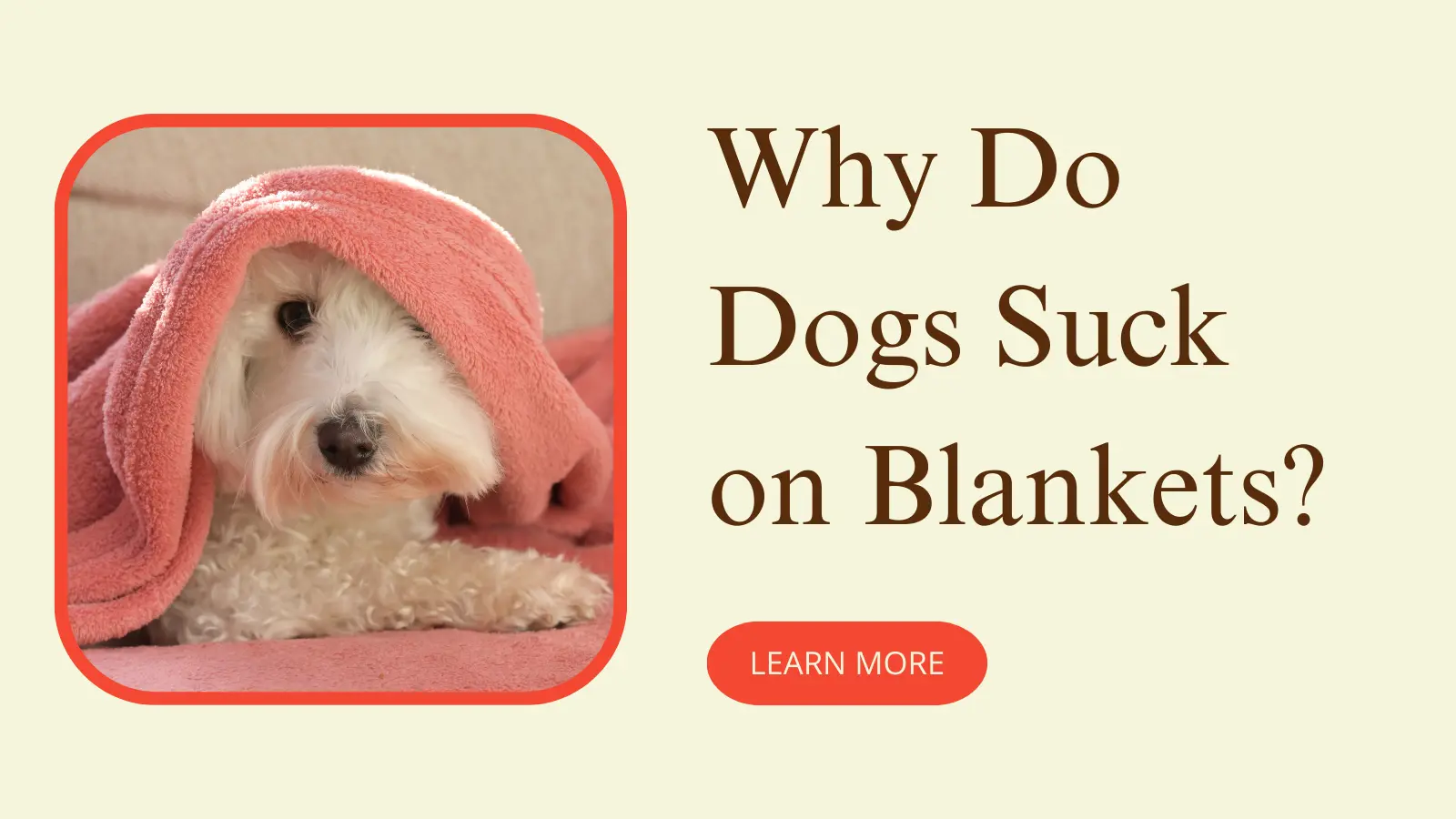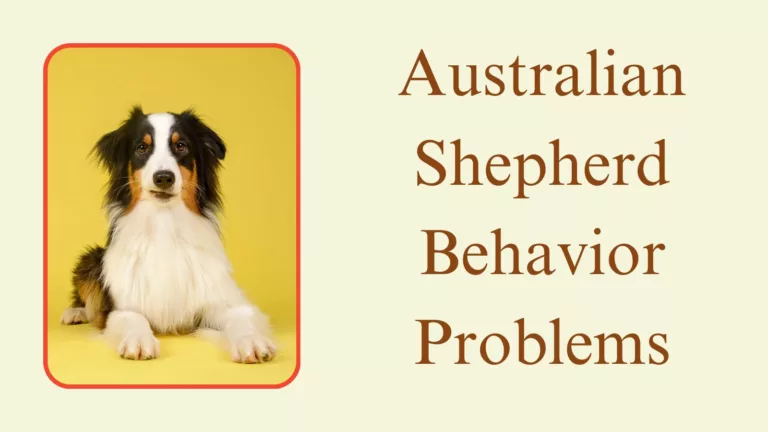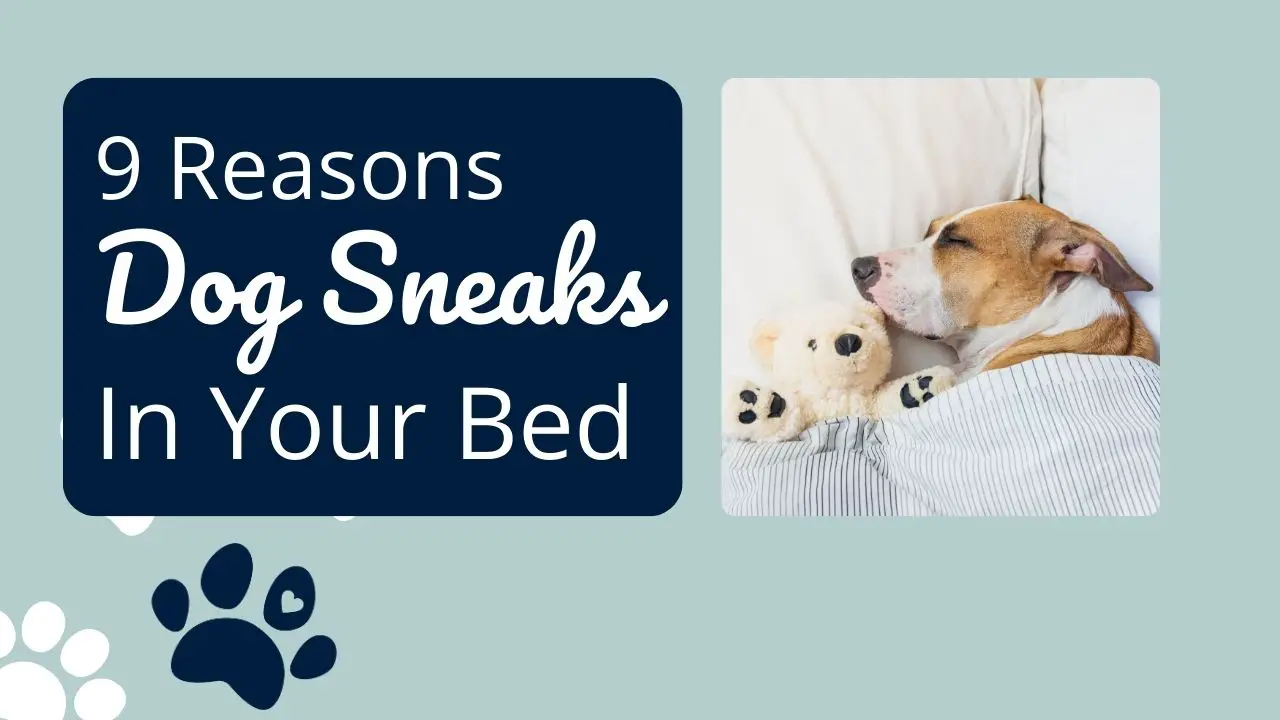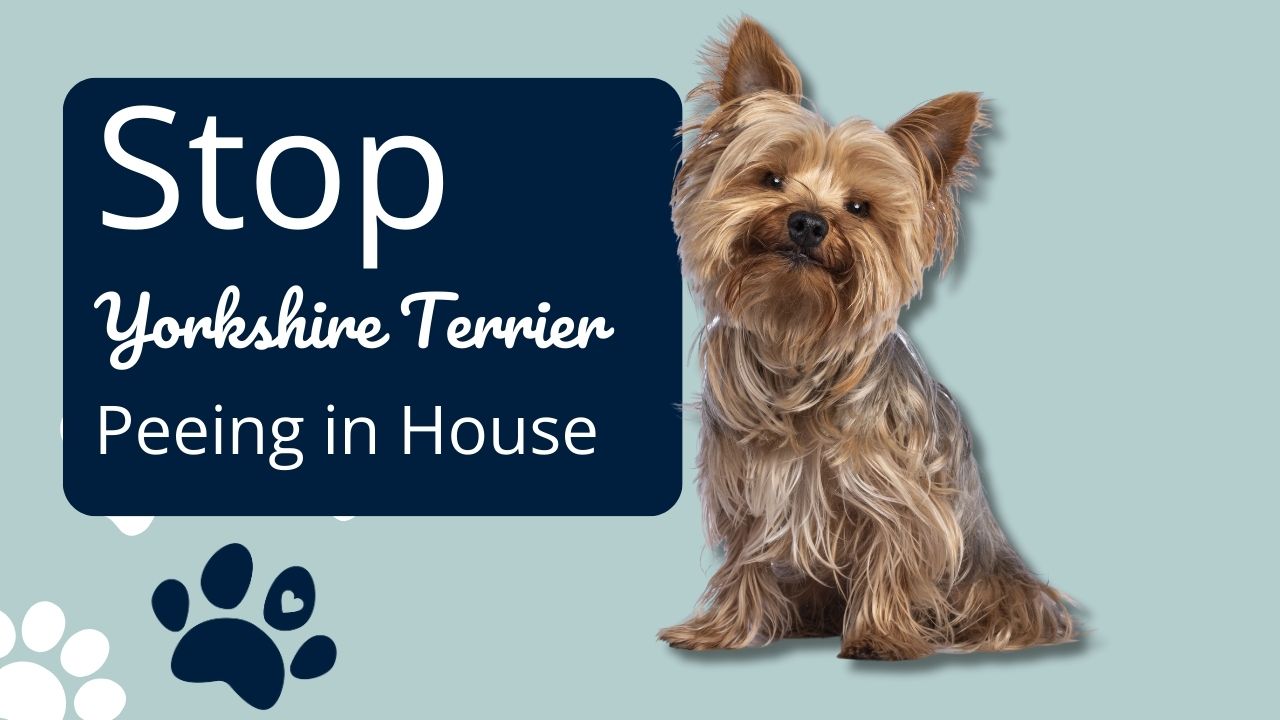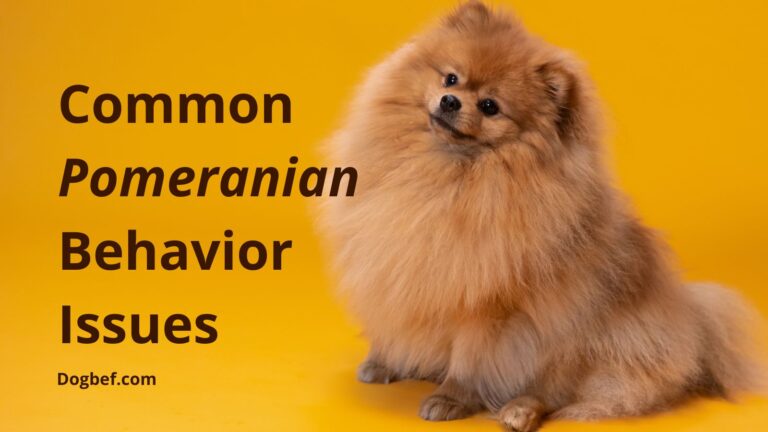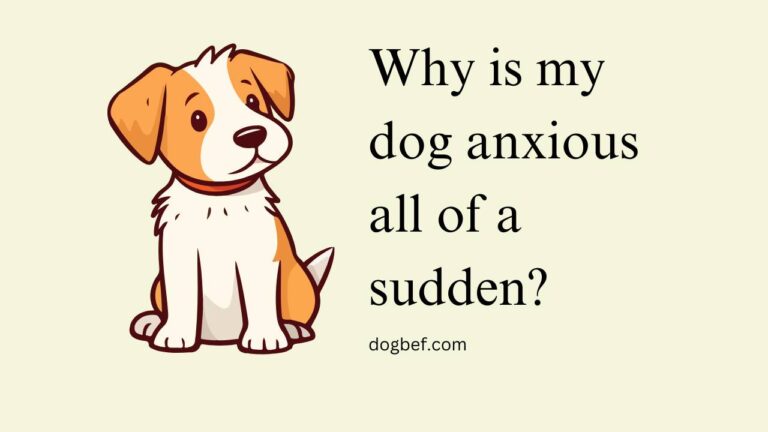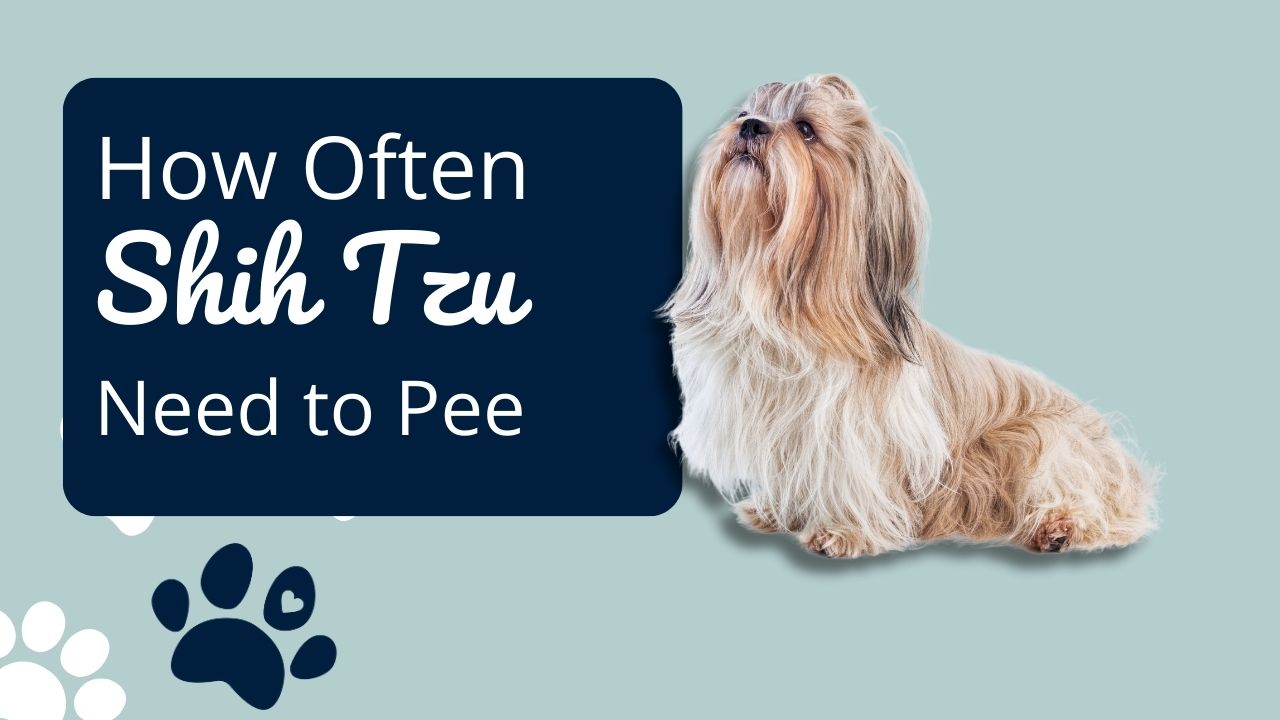I first noticed my dog Luna sucking on her favorite fleece blanket as a puppy. She would gently take the corner of the blanket in her mouth and suckle on it until she fell asleep. It was an adorable habit, though I wondered why she did it. Blanket sucking is actually quite common in dogs. Like humans who suck their thumbs, dogs suck on blankets for a variety of reasons. The behavior may emerge naturally, or develop over time as the dog learns it is calming and soothing.
This article explores some of the main theories behind why dogs suck on blankets. Reasons range from boredom and anxiety to nursing instincts and even teething in puppies. While occasional blanket sucking is normal, excessive or distressed sucking could indicate an anxiety issue to be addressed. By understanding the potential causes behind this peculiar canine behavior, we can better address our dogs’ needs.
Reasons behind the dog behavior and blanket sucking
Dogs suck on blankets for several reasons. The motion can have a calming, self-soothing effect. Teething puppies may use blankets to relieve sore gums. Early-weaned puppies removed from moms too soon suck blankets instinctually. Bored dogs lacking stimulation suck blankets to pass the time. Anxious dogs use blanket sucking to cope with stress. While mild sucking is normal, excessive or distressed sucking could indicate issues like pain, boredom, or anxiety requiring veterinary attention. Knowing the psychology behind this quirky canine habit allows owners to better address their dogs’ needs.
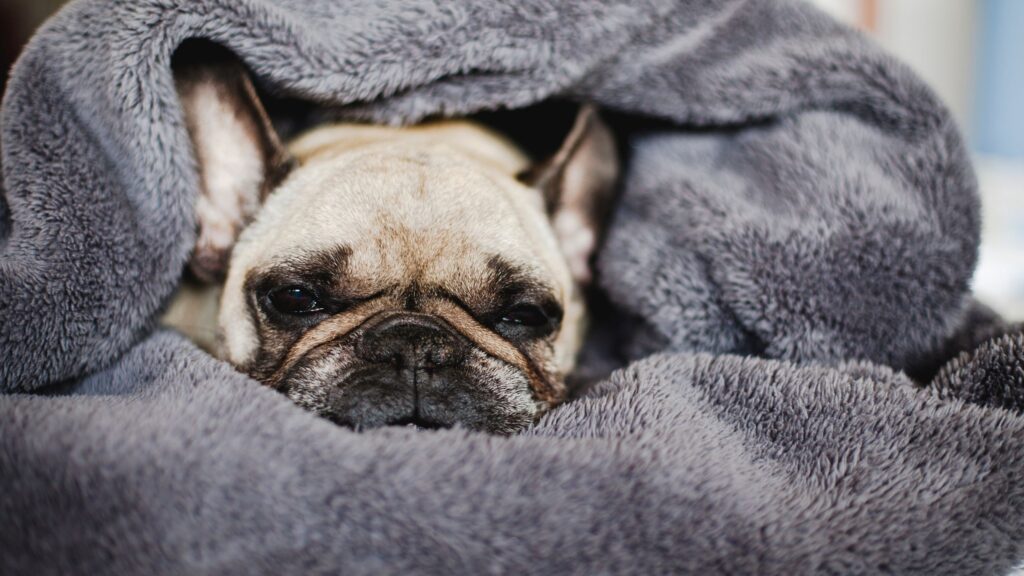
Calming and Soothing
One of the main theories behind dogs who suck on blankets is that it has a calming or soothing effect. The actual motion of sucking or chewing on a blanket seems to relax dogs. Similar to the way some babies and children suck their thumbs, the repetitive motion of sucking produces serotonin in the brain which can have a calming effect. Dogs may suck on blankets as a way to comfort or soothe themselves, especially if they feel anxious, stressed, or overwhelmed.
The actual texture or sensation of having a blanket in their mouths to suck on can be calming as well. Some dogs are given special chew toys or blankets to suck on to help ease anxiety issues like separation anxiety or fear of loud noises like thunderstorms. So just like thumb sucking can calm and relax infants, blanket sucking may have the same soothing impact for dogs.
Teething
Another common reason puppies may suck on blankets is for relief from teething pain and discomfort. Just like human babies, young puppies go through a teething phase as their adult teeth come in. This causes irritation, swelling, and pain in their gums. Sucking on a blanket applies pressure to the gums, which can help relieve some of that teething discomfort.
The blanket acts like a teething ring or chew toy. Different textures can massage their sore gums as well. Some puppies will suck on blankets specifically when they are teething up until around 6-9 months old. So if you notice blanket sucking behavior emerging suddenly in a young pup, teething is likely the culprit. Providing plenty of chew toys and frozen treats can help provide teething relief and discourage puppies from over-sucking on blankets.
Nursing Instinct
In some cases, dogs may suck on blankets out of an instinctual need to nurse. This behavior is most common in puppies who were weaned and removed from their mothers too early. Ideally, puppies should stay with their mothers until at least 8-12 weeks old. Puppies removed earlier can develop a strong nursing instinct and need for suckling.
Suckling on a blanket can mimic the physical and comforting feeling the puppies are missing from nursing their mother. This early weaning can cause blanket sucking to persist even into adulthood for some dogs. Providing cuddles, warmth, and bonding can help meet the needs of these dogs missing their early nurturing. Consult with a vet or trainer if this behavior becomes excessive or disruptive. Meeting the dog’s needs for comfort is important.
Boredom
Dogs may also suck on blankets simply out of boredom or lack of stimulation. If a dog is left alone for long periods without adequate exercise or mental stimulation, they may develop repetitive habits like blanket sucking to occupy themselves. It becomes a way to pass the time and self-soothe. Dogs need plenty of physical and mental engagement through walks, play, training, puzzles, and quality time with their human guardians.
Without enough activity, they can become frustrated and anxious, leading to behaviors like destructive chewing or obsessive sucking on objects like blankets. Make sure your dog is getting adequate exercise, play, training, and enrichment. Providing more stimulating toys and interactions can help redirect the dog away from developing habits out of boredom and frustration.
Anxiety and Stress
Sometimes dogs will suck on blankets when they are feeling anxious or stressed. Just like some people chew their nails or bite their lips when nervous, dogs may suck on blankets as a self-soothing coping mechanism. The action can help calm them and deal with stressful or frightening situations like being home alone, loud noises, or meeting new people.
Sucking on the familiar texture of a favorite blanket can bring dogs comfort and relief when anxious. If your dog seems to suck on blankets mainly during times of stress, anxiety may be the cause. Make sure your dog feels safe and comfortable. Consider trying calming supplements, pheromone diffusers, or anti-anxiety training. Consult with your vet as well, as excessive anxious sucking may require medication or behavioral therapy. Meeting your dog’s mental health needs is important for their well-being.
Conclusion
In most cases, mild blanket sucking is harmless and shouldn’t cause concern. However, if the behavior seems excessive, distressing, or disruptive, consult your veterinarian. Excessive sucking could indicate an underlying physical or mental health issue that needs to be addressed. With patience and care, most dogs will outgrow the need to suck on blankets as they mature and their needs are met. By understanding the psychology behind this peculiar canine quirk, we can better support our dogs’ well-being.
In summary, dogs may suck on blankets for a variety of reasons. As we’ve explored, the behavior can emerge naturally as a self-soothing mechanism, or develop over time due to factors like weaning, teething, boredom, or anxiety. The main explanations for blanket sucking in dogs include the calming and soothing effect, relief from teething pain, instinct to nurse, boredom and lack of stimulation, and stress or anxiety.
FAQs Dog Behavior and Blanket Sucking
Why do dogs suck on blankets?
Some dogs may suck on blankets for various reasons, including to comfort themselves, relieve teething pain, mimic nursing instincts, alleviate boredom, or cope with anxiety and stress.
Is it normal for dogs to suck on blankets?
It’s generally normal for dogs to suck on blankets occasionally. However, excessive or distressed blanket sucking could indicate an underlying issue like pain, anxiety, or compulsion that may need veterinary attention.
When do puppies typically engage in blanket sucking behavior?
Puppies are most likely to suck on blankets while teething, from around 3-6 months old. The pressure on their gums brings relief. Puppies orphaned too early may suck blankets for comfort.
How can you discourage a dog from excessive blanket sucking?
Ways to curb excessive blanket sucking include: providing chew toys, ensuring adequate exercise/stimulation, addressing any anxiety, removing access to blankets as needed, and positive reinforcement training. If it persists, consult your vet.
Links About Dog Behavior
Why Does My Dog Scratch My Bed Sheets?
